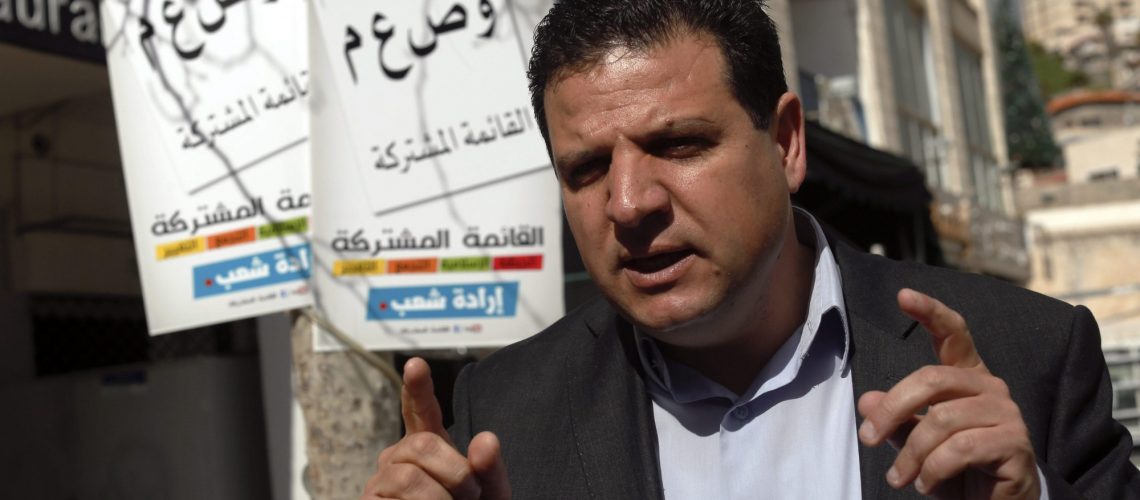The reports about MK Ayman Odeh (Joint List) canceling his meeting with the Conference of Presidents of American Jewish Organizations are so sad. According to reports, “Odeh refused to meet with the umbrella foreign policy body for American Jews because it shares office space with the Jewish Agency,” because, said Odeh, its “work displaces Arab citizen.”
Odeh also indicated that in in Israel he makes a point to stay away from “Ministry of Defense, the Foreign Ministry, and the Ministry of Aliyah and Immigrant Absorption.” We know the goal and primary historic role of the Jewish Agency is aliyah and absorption. With all of the Jewish facilities in New York, it seems insensitive to me that the Conference of Presidents could not suggest a suitable location for a meeting.
Politics is often perception; perception in politics becomes reality. Palestinians in Israel and Palestine would have seen Odeh, head of Israel’s first all-encompassing Arab party, walking into the Jewish Agency for a “getting to know you” meeting. That is way too much to expect for a first time out. Odeh made a real statement and accomplished a lot the minute he stepped off the plane. Most of the Jewish community will not appreciate his decision, or will only understand and spin it one way, and not consider the multi-dimensional teachable moment that it was.
The conflict shadows every interaction—even if unspoken— between Jew and Arab, like an unwanted guest always at the table. The conflict has given rise to a psychological wall higher than any physical wall. Israel continues to struggle with being both Jewish and democratic. As equal citizens of Israel, Arabs should receive the same treatment as Jewish Israelis, but this is not the case. Odeh came and spoke eloquently to us about this. And it is too bad that the Conference of Presidents didn’t get to hear his messages.
Israel can be Jewish only if it is a democracy. It disturbs me deeply that Israeli government discriminates against Arab communities, too often denying them proper schools, roads, utilities, and other services.
Israel can be both Jewish and democratic, yet still be a very problematic place for Arabs to live in. While I personally see no contradiction between the Law of Return and democracy, or between our national Jewish symbols and equal rights, I can easily imagine how an Arab citizen of Israel would be troubled by Jewish aspects of Israel—including the name of the country.
Israel has made substantial progress in the way it treats its Arab citizens, especially when considering that from 1949 to 1966 the Arab population in Israel lived under martial law. That said, I’m saddened to admit that in the last few years the state has moved backwards, as exemplified by the shameful bill the Knesset election committee passed a few years ago (which was later struck down by the Supreme Court) that essentially sought to ban all Arab parties from running in the national election on the grounds that they deny Israel’s identity as a Jewish state. Nothing symbolizes discrimination in a democracy more than preventing the right of equal representation. The fact that many Jewish Israelis disagree with the ideologies of most Arab parties should not exclude them from participating in the democratic process.
Similarly, a few government officials have sought to deem illegal Israeli Arabs’ annual demonstrations marking Israel’s Independence Day as al-Nakba, the day of “disaster.” While many find such demonstrations shameful and provocative, citizens in a democratic country should have the right of free speech.
I can see why a growing number of Jewish Israelis are suspicious of Israeli Arabs. Many Arabs have openly supported the Palestinian campaign against Israel and some have helped to carry out terrorist actions.
As Amos Oz has argued, much of Israel’s conduct is dictated by fear and uncertainty. But we need to overcome these understandable feelings and strive for real engagement with Palestinians on both sides of the Green Line. The current dynamic of economic domination and social separation is bad for everyone.
Earlier this year, along with fellow members of the Israeli Arab Committee of the Jewish Federation of Greater MetroWest NJ, I spent three days surveying social and economic conditions in Arab communities in Israel. Hearing our community’s leaders react when an Arab citizen referred to his identity as Palestinian, I realized identity is a pressing issue. Israel’s Arab citizens cannot decide whether they are Israeli or Palestinian — they are both. They have perhaps the most confusing identity in the Mideast. How can Israeli Arabs sing Hatikvah (Israel’s national anthem) when it talks about the “Jewish soul”?
No minority can be expected to be fully devoted to its country when its people are treated as second-class citizens. I find it remarkable that so many Israeli Arabs put up with the status quo. My fear is that their patience will run out; my hope is that we will give them more opportunities to be and feel equal.
Originally published in New Jersey Jewish News on December 16, 2015.

